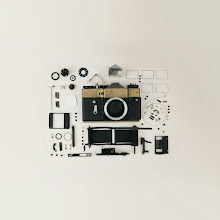5 Reasons Why You Have To Track Your Periods!
Why girls have to track periods?
They have to maintain a Period Tracker Calendar to record theri period symptoms.
Click here to download Your Period Calendar
Starting your period is an important moment but what exactly is a period and why do millions of girls get their periods every month?
Having a period is a sign of health and fertility.

On average the menstrual cycle lasts 28 days. But anything from 21 to 35 days is normal.
The cycle is regulated by hormones: the little messengers produced by the brain and ovaries.
Uterine Fibroids 14-Day Meal Plan & Recipes
Value: $34.95 (Now Free)
CLICK ON THE IMAGE
It has four phases: menstruation, pre-ovulation ovulation and pre-menstruation.
Menstruation is when the lining of the uterus is shed through the vagina as menstrual fluids.
This can last anywhere from three to seven days. You only lose about four to twelve teaspoons of menstrual fluid during your periods.
And not all of this is blood in order to stay confident and protected during this time try always radiant teen pads.
They are made of flex foam so they can be thin and flexible without skipping out on protection.
During the next phase the brain sends messages to the ovaries and uterus to produce hormones called estrogen and progesterone.
I-know ovulation test kit for women planning pregnancy - 5 strips Order Now 38% Off
These hormones prepare an egg for release and cause the lining of the uterus or endometrium to thicken.
You may notice thicker vaginal discharge around this time and choose to always wear daily liners to keep you feeling fresh.
14 days before your next period a mature egg is released from one of your ovaries into the fallopian tube this is called ovulation.
If fertilized by a sperm cell the egg will lodge in the endometrium and start a pregnancy.
If it's not fertilized the endometrium is no longer needed and starts to break down this is the beginning of the premenstrual phase.
During this phase you may get cramps you may also feel a bit more emotional than usual or experience bloating breakouts, tender breasts.
How to avoid common menstrual problems?
This is known as pre-menstrual syndrome or PMS and can be eased by a healthy diet, light exercise or taking a warm bath.
Finally the endometrium starts to leave the uterus and your period and menstrual cycles start again so that's it.
Now you know how the menstrual cycle works? Make sure you're stocked up on the right products and look out for your friends especially in the days leading up to their period.
Every woman should know about menstrual health so she can have a safe pregnancy.
You have to maintain a period calendar. So that you can track your menstrual cycle. This would help you in a number of ways.
A Period Calendar - Why Track Your Menstrual Cycle?
You can track your period by using a calendar. It can help you stay prepared in several ways. Look at what we mean!
Using a period calendar will help you avoid being caught by surprise by PMS or your period. This does not require you to actually note the day on a paper calendar; more on that later.
Get the Modern Menstrual Care: FREE Solutions by Sirona
Charting helps you comprehend your own body rhythms and provides you more control over your reproductive health.
What To Track?
It's simple to record your period symptoms on a monthly cycle calendar, but it's one of those things that requires constant practice to be effective.
Try writing down any other symptoms you believe might be related to your period, such as cramps, mood swings, changes in your vaginal discharge, unexpected pain, or other symptoms, in addition to recording when your period starts and stops.
It's likely that you'll see a trend after a few rounds. Once you can predict the symptoms, you can prepare for them. PMS on the way? Put a few pills in your purse. Period due? Purchase plenty of pads so you won't be without one when you most need it!
A 4-Step FREE Guide to Choosing A Menstrual Cup
If you've had periods for a time, you are aware of your typical flow. Keep an eye out for any changes in color and texture as well as any light or heavy bleeding (like blood clots).
Take note of any unusual vaginal discharges as well throughout the month. In the middle of your cycle, your discharge may get thicker or stickier; this is typical and indicates that you are ovulating.
Why Is It Important?
Even if it seems strange, regularly recording every aspect of your cycle can provide your doctor with useful data. Your doctor will probably inquire about the timing of your last menstruation the next time you see your doctor. You can really easily get the answer if you keep track of your periods! Your doctor will also find other information to be useful to know.












0 Comments